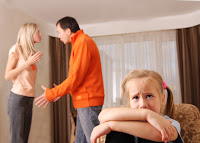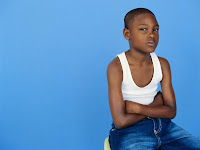Is it possible that marital discord causes Oppositional Defiant Disorder in some cases?
 The short answer is ‘no’ – it doesn’t cause Oppositional Defiant Disorder (ODD), but it is definitely a contributing factor. Much of the research to date addresses the influence of parents’ attitudes and actions on the behavior of their kids. Studies have consistently shown a strong correlation between marital dissatisfaction and overt marital conflict and kid’s oppositional defiant behavior. Studies have examined numerous explanations for these findings.
The short answer is ‘no’ – it doesn’t cause Oppositional Defiant Disorder (ODD), but it is definitely a contributing factor. Much of the research to date addresses the influence of parents’ attitudes and actions on the behavior of their kids. Studies have consistently shown a strong correlation between marital dissatisfaction and overt marital conflict and kid’s oppositional defiant behavior. Studies have examined numerous explanations for these findings.
One such explanation was that dysfunctional marital relationships lead to dysfunctional parenting practices. Marital conflict has been positively linked with callous disciplinary practices used by moms and dads, lower levels of parental participation, and more recurrent parent-child conflict. Conflicted moms and dads are also less likely to praise their kids, read to them, engage in recreation with them, or spend time with them in relational or social activities. This detachment fuels negative relationships within families.
Families where both the mom and dad blame the youngster and “scapegoat” him demonstrate high levels of marital discord and “acting-out” behaviors in the youngster is evident. This type of parenting strategy, or lack of one, may be seen as an example of how maladaptive parenting styles and the youngster’s misbehavior become intertwined and reciprocally reinforcing. What is most important is the way these behaviors are substantiated through family interaction styles and how they serve a homeostatic function, in that it helps to maintain balance within the family system.
Other factors involving parents’ actions and attitudes have been shown to affect a kid’s behavior. For example, depression in the mother or father is related to a particular style of conflict-management in the home. Parents with depressive symptoms were shown to use more evading and aggressive conflict resolution strategies in the marriage and family relationship. These maladaptive conflict resolution styles can be positively correlated to the kid’s destructive behaviors. Negative parental conflict-management styles can also impact the kid’s ability to manage conflict properly himself, with either family or peers.
Parental antisocial behavior has a monumental influence on kid’s adjustment difficulties. Such detrimental parental conduct plays a major role in family disturbance and the growth of kid’s “acting-out” behaviors. This conduct also leads to adjustment problems in kids (e.g., anxiety, low self-esteem, depression, destructive behaviors, etc.).
Parental hostility and conflict seem to be the most prevalent negative influences on kids within the family system. Antagonism and lack of involvement within the marital relationship are the most caustic form of marital disagreement and are linked to dysfunction throughout many levels of the family system. When parents participate in both aggressive and distancing behaviors in their interaction with one another, they tend to have kids who exhibit harmful affect and non-cooperation with peers who have higher levels of “acting-out” issues. This subject can even be narrowed to include moms and dads who improperly argue about what is proper parenting. This aspect of moms and dads fighting with each other over parenting issues has also been shown to adversely influence kid’s actions and attitudes.
Parental marital conflict significantly increases kid’s anxiety and depression. Marital conflict and dissolution of the marital relationship are early environmental adversities that negatively impact kid’s physical health. The impact of the parent’s behavior on the youngster’s behavior is, therefore, well documented. If moms and dads are able to successfully and understandingly work through problems together, they evidence more involved and supportive parenting with their kids.
Mom’s special influence:
A mom’s special influence in a youngster’s life can be a powerful force for good or ill. Kids with moms who feel uncertain of their parenting skills and use love conditionally tend to report more anxious kids. Moms who display hostile control and discipline are more likely to have kids with conduct problems.
Moms tend to have much more of a positive influence on their kid’s behavior than dads. This could be attributed to the fact that it is socially accepted that moms should be psychologically available to their kids in spite of their own problems. Females may be able to deliberately disconnect their roles as spouse and as mom, thereby lessening the impact of a poor marital relationship on their responsibility as moms.
Dads, on the other hand, tend to have a more negative impact. This may be due to the fact that disconnected dads produce a family atmosphere in which kids feel more at ease with their moms. This may cause kids and moms to create alliances that segregate dads and may lead to the dad’s retreat from family interactions and an increased expression of negative behaviors within the family.
Marital conflict has also been shown to be associated with negativity in the mom’s relationship with the pre-teen son or daughter. This marital conflict has been linked to a lack of responsiveness on the part of the mom in the mother–child relationship.
Moms and dads who experience unremitting marital conflict are likely to have limited emotional availability for their kids. The lower the levels of conflict are, the less negative the parent–child relationship tends to be. Although moms and dads have a paramount influence on their kid’s lives and behavior, other environmental factors contribute as well.
==> Parenting Children and Teens with Oppositional Defiant Disorder


